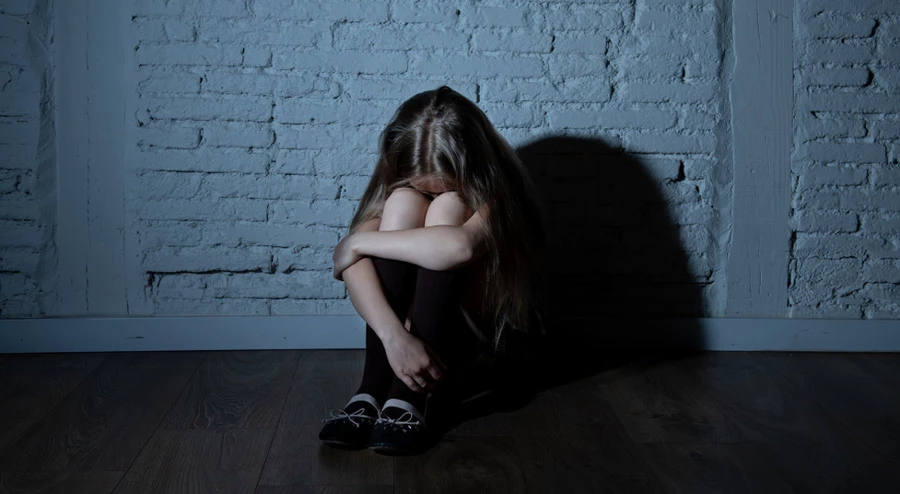The Links Between Complex Trauma and Problem Drinking
Complex Post-Traumatic Stress Disorder (C-PTSD) results from long-term exposure to traumatic experiences. This could be a childhood filled with abuse or neglect, prolonged domestic violence, sexual abuse, or living in conflict zones for extended periods of time.
It’s not uncommon for individuals grappling with this kind of psychological distress to turn to alcohol as a coping mechanism to numb their pain and potentially escape what often feels like unending suffering, thus creating a link between complex trauma and problem drinking.
However, leaning on alcohol use for comfort can ultimately compound the problem—it exacerbates symptoms over time, leading you further into dependency.
If you or a loved one are suffering from trauma and problem drinking, this may sound very familiar. But help is available, and Catalina Behavioral Health is here to support your recovery and help you thrive again!
Seeking professional help becomes essential to breaking this cycle. With intervention and appropriate treatment, individuals suffering from complex PTSD and alcohol dependence can regain control of their own mental health issues and lives.
Keep reading to learn more about the CPTSD and alcohol abuse connection, and find effective options for alcohol treatment and trauma here at Catalina as well!
Get a Confidential Assessment Now – Call Now!
What Is Complex PTSD?
Complex Post-Traumatic Stress Disorder (C-PTSD) is a mental health condition caused by enduring complex trauma over a prolonged period of time, typically in childhood or early adulthood. Unlike PTSD or even Post Traumatic Stress Syndrome (PTSS), which are often linked to one specific traumatic event, C-PTSD results from repeated exposure to severe stressors where the victim finds no feasible way out.
While Complex PTSD has not been added to the Diagnostic and Statistical Manual (DSM) yet, it is often discussed and diagnosed by mental health professionals.
It often entails what are thought of as common PTSD and PTSS symptoms, but with trauma recovery is more challenging due to more severe symptoms that have become entrenched over time.
Let’s take a closer look at what these are composed of.
6 Telltale Symptoms of Complex PTSD

Recognizing the symptoms of Complex posttraumatic stress disorder (C-PTSD) is crucial to taking the first step toward getting help. They can have a significant impact on both your physical and mental health. The symptoms most often include the following:
- Dissociation: Individuals may potentially struggle with dissociation, a disconnected state where they feel detached from their own body or thoughts.
- Flashbacks and Nightmares: Individuals with C-PTSD frequently experience intense, disturbing flashbacks and nightmares that vividly recall traumatic situations, making it feel like they’re happening all over again.
- Negative Self-Perception: You may agonize over extremely negative self-images, feeling unworthy, or blaming yourself for the traumatic events that occurred. This could make you feel detached from others and lead to feelings of loneliness or social isolation.
- Emotional Dysregulation: This may manifest as difficulty controlling emotions leading to sudden outbursts of anger or repeated bouts of sadness or anxiety which could potentially risk relationships and jobs.
- Isolation and Difficulty Maintaining Relationships: Fear or mistrust may lead you to withdraw from friends and family, resulting in feelings of loneliness and difficulty forming or maintaining relationships.
- Unhealthy Coping Mechanisms: This symptom of C-PTSD refers to the various harmful methods that you may use to manage your distress. These could include alcohol or drug abuse, self-harm, eating disorders, and other risky behaviors. These coping mechanisms are adopted because they provide temporary relief from the pain of remembering traumatic events.
Recognizing these signs is a step toward getting help; don’t hesitate to seek assistance from mental health professionals.
Accredited Mental Health and Addiction Treatment Programs
What Kinds of Traumatic Events Lead to Complex PTSD?
The following events have been found to potentially cause Complex PTSD:
- Child Abuse, Neglect, or Abandonment: Unresolved pain from childhood abuse whether physical, sexual, or emotional can lead to C-PTSD. Similarly, abandonment and neglect in early years can also yield deep-seated trauma.
- Ongoing Domestic Violence or Abuse: Continuous exposure to violence in the home environment often leads victims (children and adults) into a relentless traumatic state resulting in this disorder.
- Repeatedly Witnessing Violence or Abuse: Not just the direct victims, but also those who repeatedly witness acts of violence or abuse may develop C-PTSD. The trauma here originates from an overwhelming sense of helplessness and fear.
- Coercion into Prostitution: Individuals who are forced or manipulated into sex work often experience sustained periods of intense trauma, leading to C-PTSD.
What are the Risk Factors For Developing Complex PTSD?

The probability that you will develop PTSD or C-PTSD can increase under the following circumstances:
- You Suffered Trauma at an Early Age: Early-life trauma has particularly profound effects given that children have not yet developed effective coping strategies. The impact is more severe and lasting compared to trauma faced in adulthood.
- Prolonged Exposure to Traumatic Experiences: The longer you are exposed to traumatic experiences, the greater the likelihood you will develop Complex PTSD.
- Escape or Rescue Were Unlikely or Impossible: Situations, where the trauma is inescapable, amplify feelings of fear and helplessness, making it more likely for C-PTSD to develop. This could include instances like domestic abuse where victims feel trapped.
- Harm by Someone Close To You: Betrayal from someone you’ve trusted deeply can be extremely damaging, particularly when that person has substantial emotional significance in your life. Their harmful actions cause intense anguish leading to complex PTSD.
Past Mental Health Issues and C-PTSD Symptoms
The connection between both genetically inherited mental health disorders and those triggered by traumatic events is still being studied, but initial findings show a strong correlation.
- History of Other Mental Health Conditions, Including PTSD: If you already suffer from mental disorders such as depression, anxiety disorders, borderline personality disorder, or an existing Post-Traumatic Stress Disorder (PTSD), your susceptibility to developing Complex PTSD significantly increases following exposure to prolonged trauma.
- Family History Of Mental Health Illnesses: Genetics play a crucial role in determining how resilient we are psychologically – so having family members with a history of other mental health issues like depression and anxiety might predispose us towards the development of C-PTSD after facing severe trauma.
- Less Social Support, More Negative Interactions: If you find yourself in a social environment where support is minimal or non-existent, it could make your recovery process more difficult. Additionally, an increased number of negative interactions regarding the trauma might escalate your feelings of isolation and misunderstanding thus triggering C-PTSD symptoms.
- Avoidance Coping: Practicing avoidance as your main coping mechanism can also escalate risk for Complex PTSD. By consistently evading distressing experiences instead of confronting them directly, emotions related to trauma persist, while increasing feelings of anxiety and helplessness over time.
These are potential risk factors associated with the development of Complex PTSD attached to each of the above symptoms, but every individual’s situation is different.
Up to 100% of Treatment Costs Covered by Insurance
How Complex PTSD Leads to Addiction
Complex PTSD can potentially lead to addiction due to a common coping strategy known as self-medication, which is the practice of using substances in an attempt to mitigate disturbing symptoms linked to the disorder.
You might turn towards alcohol abuse as a way to numb pain and manage distressing emotions. Here’s why this happens in many cases:
- To Escape From Painful Emotions: Trauma inevitably induces intense emotional upheaval that you may find intolerable over time – feelings such as fear, guilt, numbness, or extreme sadness are just some common examples. Substance use can then appear attractive because it temporarily suppresses these overwhelming emotions.
- Temporary Relief from Physical Symptoms: The body also reacts physically by manifesting symptoms like insomnia and chronic aches or pains following trauma exposure. Drinking alcohol might seem effective in reducing some of these feelings, leading to a substance use disorder.
- Seeking Social Connection: In seeking relief from isolation borne out of C-PTSD symptoms, you might gravitate towards other substance abusers due to shared experiences, endorsing these habits further.
- Risk-Taking Behaviors & Desire For Control: The enduring nature of trauma in C-PTSD may lead to impulsive, risk-taking behaviors including substance misuse. In a way, you might use substances as an attempt to reclaim control over your emotions and body, which often feels hijacked by the disorder or the trauma.
That being said, addiction is not inevitable by any means; there are numerous effective treatments available for Complex PTSD.
Treating Complex Post Traumatic Stress Disorder and Addiction

Some of the additional symptoms and the most common treatments for C-PTSD include:
Trauma-Focused Cognitive Behavioral Therapy (CBT)
This is a highly effective psychotherapeutic intervention that focuses on changing the negative thought patterns and behaviors resulting from trauma.
Through gradual exposure to thoughts, memories, and situations related to past trauma, you are taught how to face these triggers head-on instead of avoiding them.
Cognitive Processing Therapy (CPT)
This is another powerful trauma-focused therapy that places particular emphasis on the cognitions or thought processes resulting from your traumatic event. Here’s what CPT typically involves:
- Understanding Thought Patterns: The starting point in CPT usually includes learning about the connections between thoughts, feelings, and behaviors and understanding how distorted thinking patterns evolved post-trauma.
- Identifying Stuck Points: Therapists will help you identify “stuck points,” which are problematic beliefs or unresolved issues hindering your recovery process – for example, these can relate to self-blame for the trauma.
- Challenging Negative Beliefs: A significant part of CPT involves challenging and modifying the negative belief systems resulting from trauma. You learn to question these unhealthy thoughts and analyze their validity.
Eye Movement Desensitization and Reprocessing (EMDR)
EMDR is another evidence-based approach specifically designed for PTSD treatment where bilateral stimulation such as eye movements aids in processing traumatic memories more adaptively.
This facilitates a reduction in distress levels associated with the physical reactions to these events.
Treatment for Co-Occurring Conditions
If you have developed other disorders along with C-PTSD such as depression or substance abuse, treatment professionals will offer integrated treatment plans addressing both issues simultaneously. Treatment has to be comprehensive and address not just the addiction or just the trauma, but both.
With appropriate support and sustained engagement throughout treatment, it is possible to overcome Complex PTSD and substance or alcohol use disorder issues, as well as other co-occurring conditions.
Catalina Treats Complex PTSD and Alcohol Effectively

Dealing with Complex PTSD paired with substance addiction can appear an insurmountable challenge. However, it is important to remember that help is available and a successful recovery process from these conditions is absolutely possible.
Should you or your loved ones recognize symptoms of C-PTSD along with signs of substance or alcohol misuse, don’t hesitate to reach out to Catalina Behavioral Health and our experts who specialize in treating both disorders.
Our professional treatment team is equipped with the skills, experience, and understanding needed to guide you through your healing journey. Using proven therapeutic interventions, we address the root cause of your concerns and foster a path toward recovery.
Licensed Alcohol Addiction Treatment
Reach Out for Support to Overcome Trauma and Alcohol Today
The road to sustained recovery from complex PTSD and alcohol may seem long and intimidating, but rest assured that reaching out for help is the single most critical step toward reclaiming control over your life. Contact Catalina Behavioral Health today to get started with your treatment.
When you call us with questions or to seek treatment, it is always completely confidential, so please reach out to get recovery options at Catalina today!





